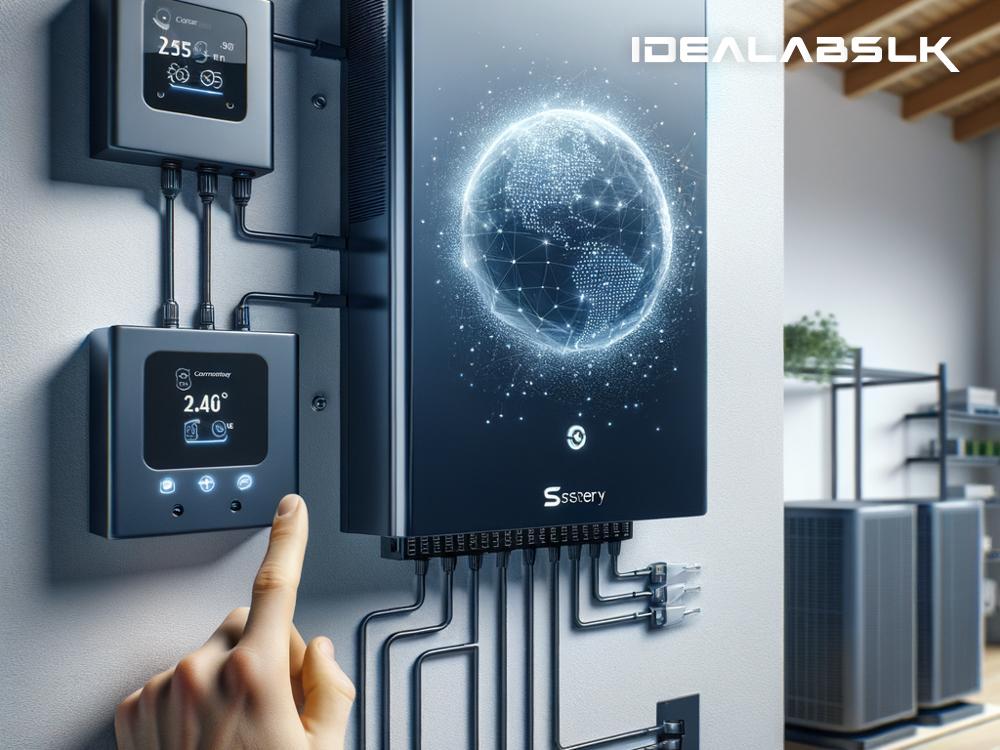Tesla Powerwall vs. LG Chem RESU: Finding the Best Home Battery for Smart Homes
In the rapidly evolving world of smart homes, having a reliable and efficient home battery can make a world of difference. Two giants in the home battery market are Tesla with its Powerwall and LG with its Chem RESU. Both of these options come with their own sets of features, advantages, and downsides. If you're on the fence about which one to integrate into your smart home, let's break down what each has to offer.
Capacity and Power
At the heart of any good home battery is its capacity and power. The Tesla Powerwall boasts a sizeable 13.5 kWh capacity, making it a strong contender for homes with higher energy needs. On the other hand, the LG Chem RESU offers various models, with capacities ranging from 2.3 kWh to 13.1 kWh. This range makes LG's solution a bit more flexible, depending on your specific power requirements.
Size and Installation
When it comes to integrating a battery into your home, its physical size and the ease of installation matter. The Tesla Powerwall has a sleek, modern design that can be mounted on a wall or the ground, indoors or outdoors. The LG Chem RESU is generally compact and versatile, allowing for both wall-mounted and floor-standing installation options. However, LG's offering might be a bit more adaptable for smaller spaces or more complex installation scenarios.
Efficiency and Usability
Efficiency is key in home battery systems, as it determines how effectively the battery can store and release electricity. The Tesla Powerwall has a round-trip efficiency of 90%, which is quite impressive. LG's Chem RESU models have efficiencies ranging from 94% to 98%, making them slightly more efficient on paper. However, real-world performance can vary based on several other factors like installation quality and system integration.
When it comes to usability, both Tesla and LG offer smart, user-friendly systems that integrate with your home's energy setup. Tesla's ecosystem, in particular, is noted for its seamless integration with other Tesla products and its intuitive app that allows for detailed monitoring and control.
Durability and Warranty
Durability is crucial for something as integral to your home's energy system as its battery. Both Tesla and LG promise reliable products but offer different warranty terms. The Tesla Powerwall comes with a 10-year warranty that guarantees a certain capacity level over the lifespan of the product. LG's Chem RESU also comes with a 10-year warranty, but the specifics can vary depending on the model and the usage conditions.
Price
The cost is often a deciding factor for many homeowners. The upfront cost for both the Tesla Powerwall and LG Chem RESU can be substantial. The Powerwall, with its larger capacity, often comes in at a higher price point than some of the smaller-capacity models of the LG Chem RESU. However, when comparing models of similar capacities, the pricing can be quite competitive between the two.
It's also essential to consider not just the initial cost but the potential savings over time. A more efficient battery that offers greater durability could end up saving you money in the long run, despite a higher upfront cost.
Environmental Impact
For those of us concerned about our carbon footprint, the environmental impact of these batteries is worth considering. Both Tesla and LG are committed to sustainable energy solutions. The Tesla Powerwall, when integrated with solar panels, can significantly reduce reliance on fossil fuels. LG's Chem RESU, with its high efficiency, also contributes to a more sustainable energy consumption pattern. Both companies are continually working on improving their technologies to make them even more eco-friendly.
Conclusion
Choosing between the Tesla Powerwall and the LG Chem RESU depends on several factors, including your capacity needs, installation constraints, efficiency priorities, budget, and environmental considerations. Both offer compelling features, but the best choice for you ultimately depends on your specific home energy needs and goals.
If you have a larger home with significant energy requirements, or if you're already invested in the Tesla ecosystem, the Powerwall might be the way to go. On the other hand, if you need a flexible, high-efficiency solution with a range of capacities to choose from, the LG Chem RESU could be your ideal match.
In either case, moving to a smart, battery-powered home energy system is a smart step towards a more sustainable and efficient lifestyle. Whichever you choose, you'll be making a substantial positive impact on your energy consumption and your carbon footprint.

